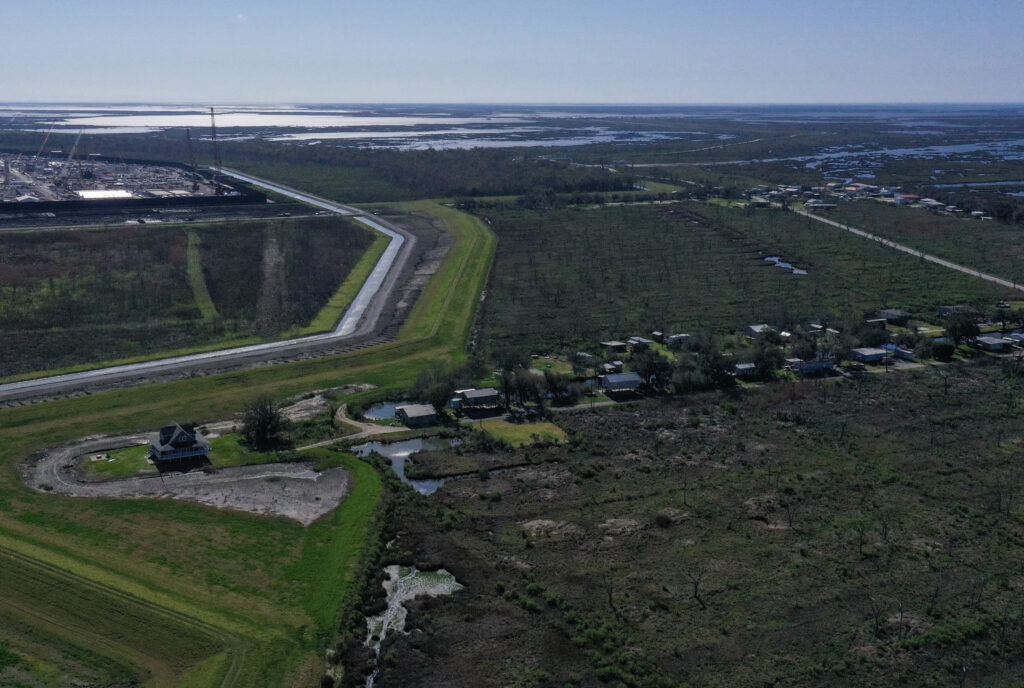Stephen J. Cox is attorney general of Alaska.
A number of my fellow state attorneys general and I are mobilizing in the Supreme Court against an attempt by Louisiana to reshape federal policy using state courts.
Chevron U.S.A. v. Plaquemines Parish may look at first glance like a “sleepy” case. The justices will simply decide whether a Louisiana community’s lawsuit against the energy giant should be heard in state or federal court. But this procedural question could affect other lawsuits targeting industries including energy, firearms, beef and more.
The case is a marker in the fight against a fast-spreading form of ideological lawfare. What looks like a technical venue dispute is, in truth, a quiet attempt to reshape national policy through local rulings — and most Americans have no idea that it’s happening.
These days, some of our country’s most progressive states, such as California and New York, are as much of a threat to state sovereignty as the federal government. They reach into states like Alaska with their rules and regulations. They push misguided legal theories targeting ordinary Americans. And they file lawsuits that would give state courts in ideologically aligned jurisdictions the chance to control the economies of states like mine.
These lawsuits aim to remake the nation in the image of progressive enclaves such as San Francisco and Portland, Oregon. This would be a disaster for the people I serve in Alaska and for the principles of federalism.
In this effort, the plaintiffs’ lawyers and their ideological allies find a surprising partner in deeply conservative Louisiana, where there are still local governments happy to push environmental lawfare.
The Plaquemines plaintiffs, which include Louisiana parishes as well as the state itself, allege that energy companies accelerated coastal erosion on the Gulf of Mexico through purportedly irresponsible energy production techniques during World War II. They prevailed at a state court trial earlier this year, securing a judgment that will ultimately top $1 billion. This was the first of approximately 40 similar cases.
The Plaquemines case resembles extremist lawfare in critical respects. The conduct alleged goes back decades. The intent of the case is to wipe a disfavored industry off the ground in the state. And the relief obtained will change life for ordinary Americans far beyond Louisiana, driving up energy prices and imposing economic harm across the country.
We respect the role of state courts in protecting their citizens and enforcing state law. But this kind of litigation goes well beyond that — it tries to set national policy through state rulings.
The closest proxies for the Plaquemines case are the more than two dozen state and municipal cases pursuing energy companies in state courts over climate change. These lawsuits are also premised on decades-old energy production activities. And they seek to inflict maximal financial damage on the energy sector and undo the operations of energy companies. It is hard to calculate the cumulative liability energy companies face from these lawsuits, but it is surely enough to destroy the sector as we know it.
If these cases prevail, Alaska could be in the crosshairs next. Picture the Alaska liquid natural gas project once it’s finally completed: the 807-mile pipeline, the gas treatment plant, the LNG facility and shipping terminal all built; thousands of Alaskans employed and paying low gas prices; and long-term contracts delivering gas to American allies abroad. Then imagine an activist foundation funding a late-breaking lawsuit in state court arguing that the project is a “public nuisance” or blaming it for climate impacts. The project could be effectively destroyed.
If courts embrace the Plaquemines approach, that lawsuit could go forward in a single local or state courthouse, with the fate of a nationally significant energy company decided by one jury. Other states should never accept that kind of vulnerability. And no major project — pipeline, terminal, refinery, port — will get financed if it can be entirely undone years later by a creative legal theory in a local or state court.
This lawfare push, using public nuisance theory and other tools, isn’t just a threat to a key Alaskan industry, it’s also a threat to our way of life as Americans. I was born in Louisiana, and I love the state and its parishes. But in this case, the plaintiffs are just plain wrong on the merits. And they serve as a stalking horse for radical groups and aligned trial lawyers hard at work imposing a woke agenda on the nation by judicial decree.
When a lawsuit carries nationwide implications, it ought to be heard in the right forum: a court equipped to consider the full sweep of its consequences. That is, a federal court. Otherwise, a handful of activists will succeed in rewriting national policy one state court at a time.
The post This ‘sleepy’ Supreme Court case could change Americans’ lives appeared first on Washington Post.




